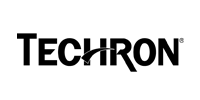How to check the coolant when checking your oil?


Heavy-duty engine coolants are not always given the attention they deserve by fleet maintenance. However, best practices in coolant system management have shown that going above and beyond the basics is often required.
Here are some preventive measures:
You can schedule coolant preventive maintenance checks at the same time as your regular oil checks.
The freeze point of the coolant should be determined using a refractometer. The pH levels must be checked as well to ensure that they are within acceptable limits. If they aren't, it could indicate a much more serious issue. This would entail collecting a sample and performing a thorough analysis.
Check to see if the coolant level has dropped significantly, as this could indicate a leak in the cooling system. Finally, the system should be pressure tested. This will ensure that the radiator cap works properly.
Fleet shops stock a variety of coolants, especially if the fleet has a mix of engine types from various OEMs. It is not an easy task to manage coolants, which is why an ongoing and robust preventive maintenance program is required.
Coolants' chemistry has become increasingly complex over time. In order to operate in a wide temperature range, glycol was added to water-based coolants, while inhibitors were added to help prevent rust.
Coolants now have a function beyond that of preventing overheating. Modern engines have exhaust after-treatment systems, including exhaust gas recirculation, to meet strict emission standards (EGR).
To perform its function, the EGR must reduce exhaust temperature, which leads to more efficient combustion in the engine and, as a result, lowers nitrogen oxide and particulate matter in the exhaust. However, for the EGR to do so, it must be capable of cooling the exhaust gases. Before recirculating the exhaust back into the engine, diesel engine coolant is used to cool the EGR.
All of this emphasizes the importance of ensuring that your coolants are maintaining the proper chemical balance and not degrading.
Preventive maintenance checks will aid in the prevention of problems not only with cooling systems but also with all engine and exhaust system component parts that rely on coolants for proper operation.





























